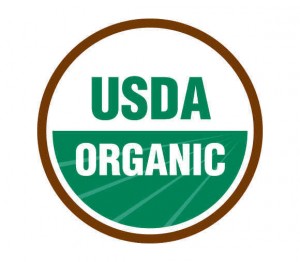5 Things You Can Do About Those National Organic Program Rumors Repeated in The Washington Post

For some time now, I’ve come across rumors of troubles with the National Organic Program (the body responsible for bestowing the coveted USDA Organic Seal and Certification). Whether it was comments from disgruntled farmers on message boards and blogs, grumblings from members at my biodynamic CSA, the time a Chilean woman came up to me at Whole Foods and laughed in my face for buying organic grapes before delivering a lecture on how “organic” food is really grown, or a half-dozen or so similar encounters…well…I’ve wondered. But what was I going to do? Blog about rumors? Some blogs run that way, but I like to have facts on my side. (I’m still a former newspaper reporter, after all!)
Now those rumors have gained more credence with a Washington Post article which makes the following allegations:
1. USDA Organic does not mean pesticide-free.
- According to The Post, “The original law’s mandate for annual pesticide testing was also never implemented — the agency left that optional… In 2004, Robinson [ the administrator of the USDA Organics Program] issued a directive allowing farmers and certifiers to use pesticides on organic crops if “after a reasonable effort” they could not determine whether the pesticide contained chemicals prohibited by the organics law.”
2. The list of non-organic substances allowed in USDA certified organic foods has increased from 77 to 245 substances since the standard was created in 2002. As The Post says, “The goal was to shrink the list over time, but only one item has been removed so far.”
3. The Post alleges that there are quality differences in organic certifying bodies, with some practicing more stringent certifications protocols than others. One it singles out for particular criticism is Quality Assurance International (QAI). The organic certifying body’s seal is on organic packaged items, although typically the seals and the country of origin are printed in very small type, so I’ve found that you have to look carefully to find these seals.
4. USDA Organic may NOT even mean 100% GMO-free. This is particularly troublesome given that avoiding GMOs is one key reason people, particularly parents, pay extra for the organic seal.
So what’s a frustrated shopper to do? I’ve taken the following steps. And based on the Post article, I’ll redouble my efforts to do so:
1. Find a local CSA or farmer’s market that you trust. Local is always better, because fresh-picked food retains more nutrients and because the carbon footprint involved in food transport is smaller. (Disclosure: I recently welcomed one of the nation’s leading farmer’s markets, FRESH FARM Markets, as a consulting client).
2. Avoid imported organic foods from countries with questionable food safety, heavy pollution, and lax regulations. For me, this means China. Soybeans are particularly suspect. It can be a challenge to find USDA organic soybeans that are not imported from China.
3. Purchase frozen foods from countries with strong health and safety records. When I’m not buying fresh veggies, I always look for frozen organic veggies produced in the US. Sometimes I buy frozen foods from France, as I blogged here. They may not be organic, but I know they don’t contain GMOs because they’re forbidden by law in the EU.
4. Think about whether you really want to pay a premium for the USDA organic seal on processed foods. If you’re buying some chips for the kids as a treat, maybe the “natural” label or plain old conventional food will do.
5. Demand accountability from Washington. The USDA Organic Seal should stand for pure, organic food free of GMOs, chemical pesticides, and synthetic additives.
I’m curious to hear your thoughts. Please leave a comment and share! I love my tweeters, but please leave a note too!
— Lynn
Copyright OrganicMania 2009
9 Responses to “5 Things You Can Do About Those National Organic Program Rumors Repeated in The Washington Post”
Leave a Reply

 My StumbleUpon Page
My StumbleUpon Page




Great post Lynn,
I like your advice about which countries to avoid. Unfortunately, buying “organic” doesn’t provide the peace of mind we thought it did.
I just had a conversation yesterday with the guys tabling for a CSA called Farm Fresh To You about organic food in plastic packaging. Even if all the certified organic food really was free from pesticides, GMO’s, and other non-organic ingredients, we know nothing about the chemicals that could be leaching into it from the plastic packaging. Why don’t we know? Because manufacturers of plastic don’t have to disclose any of the additives they use in the plastic. We have ingredients labels on food, but not for the packaging which can end up being another ingredient.
Just wanted to rant. It’s my main peeve at the moment. Thanks for this depressing info about organics. It’s a foggy day here in Oakland. Maybe I should just go take a nap.
Beth Terry, aka Fake Plastic Fish’s last blog post..Time is Running Out for 2 Causes I Care About!
I was amazed a year ago or so when I was looking at the processing aids, etc., allowed in products that can contain the Organic seal. I was looking at a particular product’s claim of all organic, although mineral oil was used in processing. And that’s okay under the program, but not okay with me. I also don’t think that is what people think is being used.
But, at least so far, it is the best we’ve got.
Jennifer Taggart, TheSmartMama’s last blog post..Correction: Cargo’s PlantLove Botanical Lipstick Is Paraben Free
hey LA — what about new zealand? seems for a long time there, whole foods was carrying organic apples from NZ and we we scarfing them down. okay?
also, am i nuts to refuse to buy any produce, organic or otherwise, from mexico? at this point, numbers 1 and 2 (with a bullet) on my list of don’t buy are things from china and mexico. am i being ridiculous?
sher’s last blog post..american girl
I don’t think ANYTHING from New Zealand ever hurt anyone.
As for China, I have heard many organic and environmental experts question whether certifications are done properly in China and whether produce can actually be grown there in a safe manner because of all the pollution. I can tell you that personally, I have made a switch and I no longer buy organic from China.
I don’t think Mexico is a problem. At least, I’ve never heard of any problems relating to food imported from Mexico.
[…] as I blogged here last week, the news that Organic Standards may not be all that they seem has turned my world upside […]
Yes, you’re right…and as someone said, sometimes with organics, it’s a case of “good fighting perfect.” When is it good enough? There is SO much else to worry about with our food system and of course our personal care products (but I don’t need to tell you that!)
Beth, I just watched “10 Americans” last night – actually in person – pretty cool. And there was a line there that said that food packaging is regulated by the FDA. I remembered your post, and thought about it, but I definitely got the impression that they regulate food packaging (which would include plastic).
You’re right…and as I said to CondoBlues above, I really feel for the organic pioneers who worked so hard to establish a better system, and now have to fight against efforts to “dumb it down.”